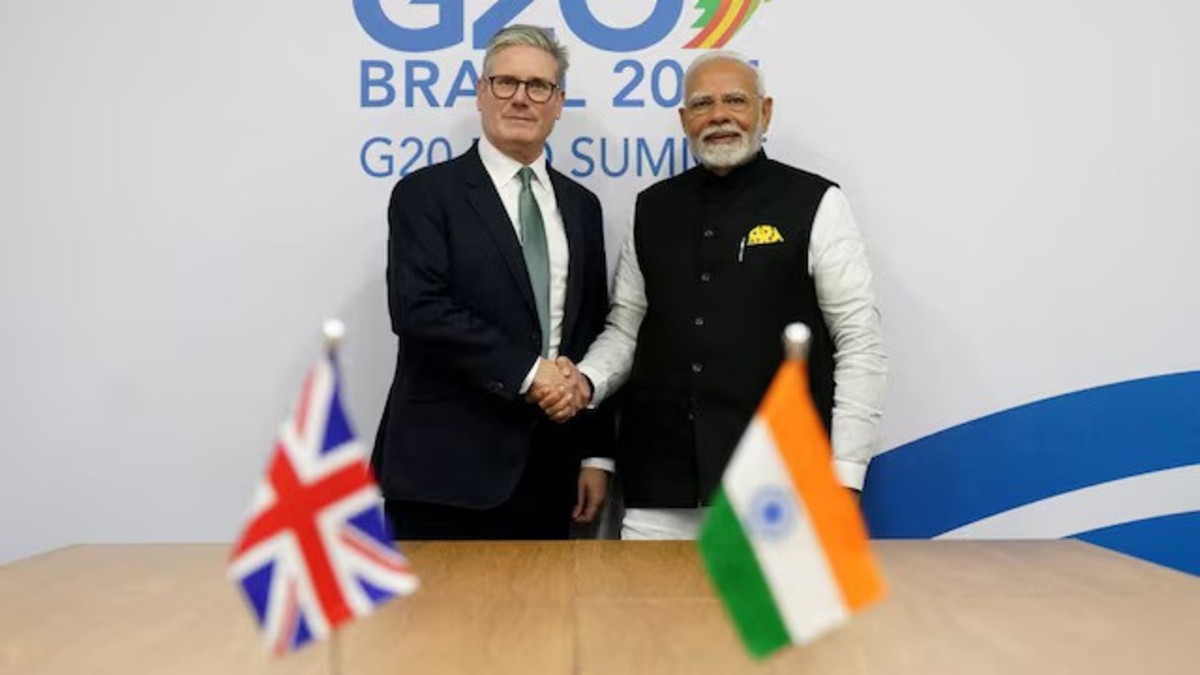After numerous discussions that swung between despair and hope — or stalled in the doldrums — the India-UK trade deal has finally cleared all hurdles. Prime Minister Keir Starmer will host his Indian counterpart, Narendra Modi, in the UK on Thursday to sign the landmark pact, expected to boost bilateral trade by £25.5 billion annually.
Trade and economy
The deal, more than just a document of statements and signatures, promises to unlock thousands of jobs and drive growth across both economies. It marks the beginning of a new chapter in India-UK relations, as the leaders unveil their vision for a modern, reinvigorated partnership over the next decade — the UK-India Vision 2035.
The trade deal stands as India’s most comprehensive agreement to date and the UK’s most economically consequential bilateral pact since its departure from the European Union. For those still nursing post-Brexit anxieties, this milestone offers a measure of reassurance, as it significantly enhances market access for businesses on both sides, paving the way for more affordable goods and services for consumers.
The UK and India’s ambitious Vision 2035 extends far beyond the corridors of commerce. It marks a new threshold in their revitalised commitment to shared prosperity and innovation encompassing deeper defence cooperation through a new industrial roadmap, joint efforts to secure borders, combat climate change and foster educational ties.
The recent instance of Indian assistance in returning a grounded British F-35 to the skies in Thiruvananthapuram may well serve as a harbinger — a symbolic reminder that New Delhi and London stand shoulder to shoulder, in times of triumph and in moments of trial.
Exactly one year after the signing of the landmark UK-India Technology Security Initiative, the two prime ministers will reaffirm their commitment to fortifying national security leveraging frontier technologies and co-shaping the innovations of tomorrow.
‘Plan for Change’
Prime Minister Keir Starmer said: “Our landmark trade deal with India is a major win for Britain. It will create thousands of British jobs across the UK, unlock new opportunities for businesses and drive growth in every corner of the country, delivering on our Plan for Change.
“We’re putting more money in the pockets of hardworking Brits and helping families with the cost of living, and we’re determined to go further and faster to grow the economy and raise living standards across the UK.”
Impact Shorts
More ShortsBusiness and Trade Secretary Jonathan Reynolds said: “India is one of the fastest growing global economies in the world and an emerging economic superpower of the 21st century.
“The historic trade deal we have signed today is the most comprehensive deal India has ever agreed – putting the UK in the best position to partner with India over the next decade, promising to unlock thousands of jobs and boost growth across both economies.
“The nearly £6 billion in new investment and export wins announced today are a sign of things to come, as future collaboration expands into advanced technologies, critical minerals, green finance, and beyond.”
In countless Indian households, relics from the colonial era, etched with the words ‘Made in England’ still endure, silent reminders of a time when British goods were prized possessions that crossed oceans to find a place in Indian homes.
Today, thanks to the landmark trade agreement, a new generation of Indian consumers will enjoy enhanced access to premium British products — from soft drinks and cosmetics to automobiles and medical devices — as average tariffs fall dramatically from 15 per cent to just 3 per cent.
Conversely, while the UK already imports £11 billion worth of Indian goods, the liberalisation of tariffs will not only make Indian products more accessible and affordable for British consumers and businesses, but also significantly bolster Indian exports to the UK.
Clean energy and services expansion
On the renewable energy front, the UK’s clean energy sector will gain unprecedented and privileged access to India’s expansive procurement market. It is a significant opportunity for the British firms as India accelerates its transition to renewables amid rising energy demand.
In the area of financial and professional services, guaranteed market access will provide long-term certainty for UK firms seeking to expand within India’s dynamic economy.
Key provisions, such as binding India’s foreign investment cap in the insurance sector and ensuring UK financial services enjoy parity with domestic providers, further showcasing the ambition and balance of this agreement.
Twenty-six British companies have announced new business in India. Airbus & Rolls-Royce will soon begin delivering Airbus aircraft – with over half powered by Rolls-Royce engines – to major Indian airlines as part of around £5 million worth of contracts recently agreed.
Strategic and security cooperation
This renewed and deepened friendship will also venture into challenging terrains, confronting unscrupulous practices with the firm hand of the law through strengthened cooperation. As part of their reinvigorated partnership, India and UK have committed to intensifying efforts to combat corruption, serious fraud, organised crime and irregular migration underpinned by enhanced intelligence sharing and robust operational collaboration.


)

)
)
)
)
)
)
)
)



